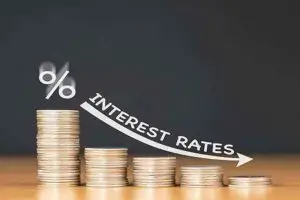What Are the Risks of Investing in Real Estate?

Historically, investing in property has been one of the best ways to create long-term wealth. Many of the world’s wealthiest people made their fortunes by investing in properties. However, just as with any type of investment, property investing isn’t without risk.
Here really are a few pitfalls you need to be alert to before learning to be a property investor.
Choosing the Wrong Location
When buying any investment property, the positioning should always be your primary consideration. You can’t move house to an even more desirable location if the neighborhood deteriorates or perhaps a strip mall goes into a block away. For commercial properties, you don’t want your can purchase the sole occupied storefront or office on a vacant block.
Items to Research
You’ll want to research industry trends and zoning in the region you’re targeting:
What has been the property appreciation rate in the last couple of years?
What changes, if any, are now being planned by the zoning board?
Additionally, you’ll desire to study the neighborhood:
Survey the shopping amenities
Drive around during rush hour to assess traffic congestion
Look into the crime rate trends and check out the ratings of the college system.
These factors matter to anyone who may want to rent or purchase the property.
Why Location Matters
The positioning also determines supply and demand, which comes into play when you need to sell. Don’t tempt to purchase in a particular area where prices are lower. But this is actually a terrible choice. If prices are low, there’s usually a reason.
The positioning may lack a growing population or perhaps a good job market. Or way too many available investment properties might be lowering rental income. Low demand will undoubtedly be reflected in less sales price and a higher amount of days on the market. And these raise your holding costs.
Some areas may have a top tenant occupancy rate with few owner-occupants. Owners who live on-site usually take better care of these property. They also monitor crime in the neighborhood. So, areas without owner-occupants frequently have less quality of tenant.
Thus, your initial cash outlay might be lower, but you may end up paying more in repair costs. And that will not help your bottom line. Also, you may face an increased danger of getting vandalized or robbed. Nobody wants that. All of it can result in unexpected expenses and high repair costs, along with legal matters.
Location is also the most significant determinant of property appreciation. Low appreciation could mean an adverse return on investment when you choose to sell. No appreciation means you’ll likely lose money whenever you sell, after paying commissions and transaction fees. Maybe you are tempted to buy a cheap investment property, but in most cases, the chance isn’t worth it.
Paying Too Much (Or Not Getting What You Think You Paid For)
Buying the right property at the right price is arguably the most critical section of succeeding as a property investor.
It’s paramount not to overspend on the purchase price or the renovation. In the purchase process, it’s way too easy to purchase a property that’s more damaged than it looks. (You can’t see behind the walls or test all of the systems within a walk-through.) You’ve to calculate costs with diligence and take some leaps of faith. Which means there’s a risk that you are not getting what you think you’re paying for. This increases the chances of facing unexpected renovations, repairs, and maintenance costs.
Always get an inspection even though you’re buying “as is.” This way, do you know what costs you may have once you become the owner. If you’re financing the purchase, your lender is going to do an appraisal, which will give you an excellent insight as well. Property appraisers and inspectors are the buyer’s friend.
Once you purchase the property, resist the urge to over-improve it beyond what the local market expects. Most rental units don’t need granite countertops or top-of-the-line fixtures. Be sure to run — and rerun — your numbers to prevent overspending.
Bad Tenants
Finding quality tenants is paramount to your property investing success. It’s essential to position tenants who pay the rent consistently, respect you, and look after your property. While that sounds simple enough, I’ve found that I need to weed through plenty of potential tenants to locate these gems.
You want to avoid having bad tenants. So, you’ll need to prequalify potential tenants. Go via a thorough tenant screening process. Including verifying their employment, checking their credit score, checking their criminal background and court records, and contacting their previous landlords. Or work with a tenant placement service, but be sure you do your due diligence on them as well.
Getting stuck with a bad tenant could be worse than having no tenant at all. Having your property empty means not collecting any rental income, but bad tenants could be worse. Some will continuously fall behind on paying the rent. This, needless to say, jeopardizes your cash flow. And you might be stuck working with the eviction process, which is time-consuming, costly, and just downright unpleasant.
Vacancy
In rental property investing, your property could become vacant for a protracted amount of time. There’s a variety of reasons this may happen. Families grow and need a bigger place. Tenants misbehave, and you decide not to renew their annual lease and question them to leave.
You’ll lose rental income during the transition time taken between tenants. You’ll need to get ready the property for another tenant and find and screen applicants before someone moves in.
A vacancy is just a huge risk for property investors who depend on rental income to pay their mortgage payments, insurance, property taxes, and other expenses.
If you are diligent about placing qualified tenants, you can avoid a large chunk of vacancy and tenant turnover costs. And if your investment property is in a leading location where rents are increasing annually, you can set yourself up for positive cash flow that increases with inflation.
Prevent the danger of high vacancy; purchase your investment property in an excellent location with a top demand for rental properties. These locations are generally safe neighborhoods with nearby amenities such as for instance transportation, shopping malls, and schools.









